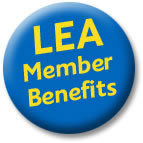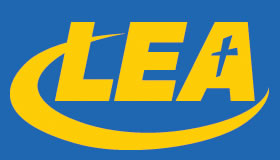
Dysfunctional no longer!
Dealing with dysfunctional boards and board members
The top five signs of a dysfunctional board…
- Meetings are so long that spouses wonder what board members were really doing last night.
- A board member is more concerned with seeing that her child can wear pink socks than in consistently enforcing the dress code.
- More meeting time is used to resolve that lunch plates need not be cleaned before getting seconds than is invested in strategic planning.
- The primary criterion for election to the board is to whom one is related.
- Intimidation is an accepted decision-making technique. (Each of these “five signs” truly happened.)
 So, you have a dysfunctional school board or board member. As dysfuctionals, they may not listen to each other or to you. Dysfunctionals often have some higher knowledge gained from “my years on the board,” or “the way we did it back when _____ was principal,” or “because of my years of service in the real world.”
So, you have a dysfunctional school board or board member. As dysfuctionals, they may not listen to each other or to you. Dysfunctionals often have some higher knowledge gained from “my years on the board,” or “the way we did it back when _____ was principal,” or “because of my years of service in the real world.”
For some reason my children come to mind when I ponder dysfunctional school boards. I did double duty as my children’s principal and their father. At home I could tell them something again and again about some finer point of successful schooling without obvious positive effect. At home I was “just Dad.” They would go to school and their teacher could tell them just one time the same thing I’d told them many times, and my little rascals would come home with a surprising revelation of pure truth! I did learn to bite my tongue. After all, it’s the positive change that matters, not where credit is actually due. There’s just something about hearing from an “expert.”
Your board needs an “expert." The internet tells me that an expert is “one who comes from out of town and shows slides.” Not satisfied with that definition, my search continued until I learned that an expert is “someone who knows some of the worst mistakes that can be made and who manages to avoid them.” So, find one of them.
Seriously, with your board’s permission, arrange for someone to talk with them about the characteristics of high functioning boards. Get your board’s permission so their hearts and minds are open to what is shared. Help provided with one’s permission is likely to succeed, while help provided against one’s will is likely to fail. Telling someone to do something when they didn’t ask for your input is like trying to convince squirrels to stay out of the bird feeder. Someone who asks for advice is likely to at least consider what he is told, and that might lead to change!
Experts include…
- Invite someone from your Lutheran district office to share ideas. District offices recognize that the source of many ministry problems and the source of many ministry solutions is effective leadership. They are investing more resources in administrative and board leadership development. Services vary, so contact your district office for details.
- Attend a regional or district school board workshop sponsored by your district or synod. Instead of sending it to the recycle bin, pass the next invitation to a board workshop on to your board with encouragement to attend with you. (Invite your school’s pastor to join the fun.)
- Bring in a consultant to provide board training. Today, business people are accustomed to bringing in consultants to work on a particular area of need. A consultant can be especially helpful when your board is anticipating a major change like shifting to or from something like policy-based governance.
- Find a nearby nonpublic school or ministry that enjoys an effective board and pleasant board-administrator relationship. They do exist – even among Lutheran schools! Invite them to send a board member and their administrator to share what makes their board effective and what makes their board-administrator relationship pleasant. Board operations are pretty much the same among effective not-for-profits, so your board can decide whether they would learn best from another Lutheran school, another Christian school, or the board of some other form of ministry or charity. Be sure to ask the chosen expert to casually address whatever your board’s signs of dysfunction.
Use what is learned
- Ask your school board secretary to take notes during the “expert sessions.”
- Set aside some time at the beginning of the next few board meetings for using the note to debrief.
- Begin debriefings by asking a board member to share just one thing she learned from the expert.
- End debriefings with a question something like, “So do we need to change?”
For guided discussion, add these tools to your school board “toolbox:"
- Board training information like Growing in Governing published by LCMS in its monthly school mailing.
- The sample Governing Board Manual provided by LCMS.
- School board standards of Lutheran Schools of Excellence at the Lutheran Schools Portal, www.lsportal.net.
Paul Brandt is a consultant for New Horizons Ministry and a former member of the LEA Leadership network. He can be reached at nhotw.com or follow him at blog.nhotw.com.
Cartoon by Benjamin Chandler, who has been teaching English and visual arts at the Lutheran Academy in Martin, Slovakia, since 2011.







